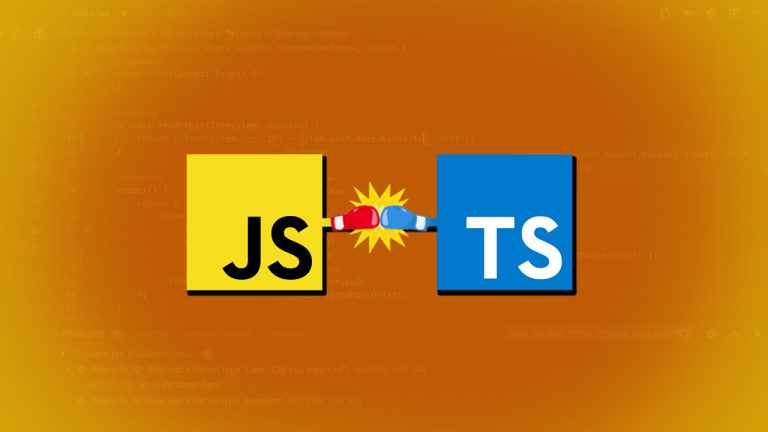JavaScript is one of the most popular programming languages that is mostly used for creating interactive web pages. Based on the jobs available on Indeed.com, JavaScript is third most demanded languages of 2019. It’s fast and doesn’t need to be compiled before use.
If you are into programming or software development, you definitely know about JavaScript. But wait! do you know about TypeScript? There are a lot of people who still have no idea about TypeScript. Today, we will have a look at both of these languages and understand the difference between JavaScript and TypeScript.
Read: Static Typed vs Dynamic Typed Programming Languages
Contents
What is JavaScript?
JavaScript is basically a scripting language that earlier only follow the rules of client-side programming. But now (after the introduction of Node.js), it can be even used for server-side programming. It runs on both the web browser and the web server. JavaScript enables our code to interact with the browser and can even change or update both HTML and CSS. Though you can use JavaScript with REST APIs, XML, etc, it was not designed to develop applications, applets or large complex systems but nowadays it’s going into these areas too.
When JavaScript was growing, its code becomes heavy and complex to such an extent that it was even not able to fulfil the requirements of Object-oriented programming.
This restricted the further growth of JavaScript as a server-side language and multitasking. And that’s where TypeScript came into existence to overcome the issues.
Also Read: Best Courses to Learn JavaScript Programming Online
What is TypeScript?
Typescript is a kind of upgraded version of Javascript language. It can run on Node.js environment or any web browser that supports ECMAScript 3 or above. TypeScript is a statically compiled language that provides optional static typing, classes, and interface. It allows you to write simple and clean JavaScript code. Thus, adopting TypeScript can help you build more easily deployable and more robust software.
Advantages of TypeScript
- TypeScript provides easy code navigation, bug prevention and maintainability of code.
It supports Static Type annotation or Static Typing. - It also supports interfaces, sub-interfaces, classes, subclasses and ECMAScript 6 or ES6.
- It comes with object-oriented programming capabilities with the inheritance of private members and interfaces.
- Rich IDEs Available
Advantages of JavaScript
- JavaScript is an open-source, flexible and powerful language backed by legends like Microsoft and Mozilla.
- It can be used for both client and server side.
- It supports classes, interfaces & modules.
- It is specially designed for small scripts.
- It’s a cross-platform language.
- It provides strong Testing Workflow and dependencies support.
Difference Between JavaScript and TypeScript
- JavaScript is an easy to learn language whereas TypeScript has a stiff learning curve and requires prior scripting knowledge.
- TypeScript supports static Typing that allow you to check type correctness at compile time whereas JavaScript doesn’t support it.
- TypeScript Code needs to be compiled but there is no need to compile JavaScript.
TypeScript support optional parameter function but JavaScript doesn’t.- JavaScript has a large community of developers but TypeScript doesn’t.
- Airbnb, Codecademy and Instagram are few companies who are using JavaScript whereas TypeScript is used by Asana, Clever, Screen award, etc.
Also Read: 6 Most Demanded Programming Languages of 2019
I hope you found the information useful. If you are a beginner, things might look confusing to you. But don’t worry, start with JavaScript, learn fundamentals first, practice some code and when you feel confident, you can start learning TypeScript. It will also help your resume stand out in the crowd of people who applied with only JavaScript skills.



